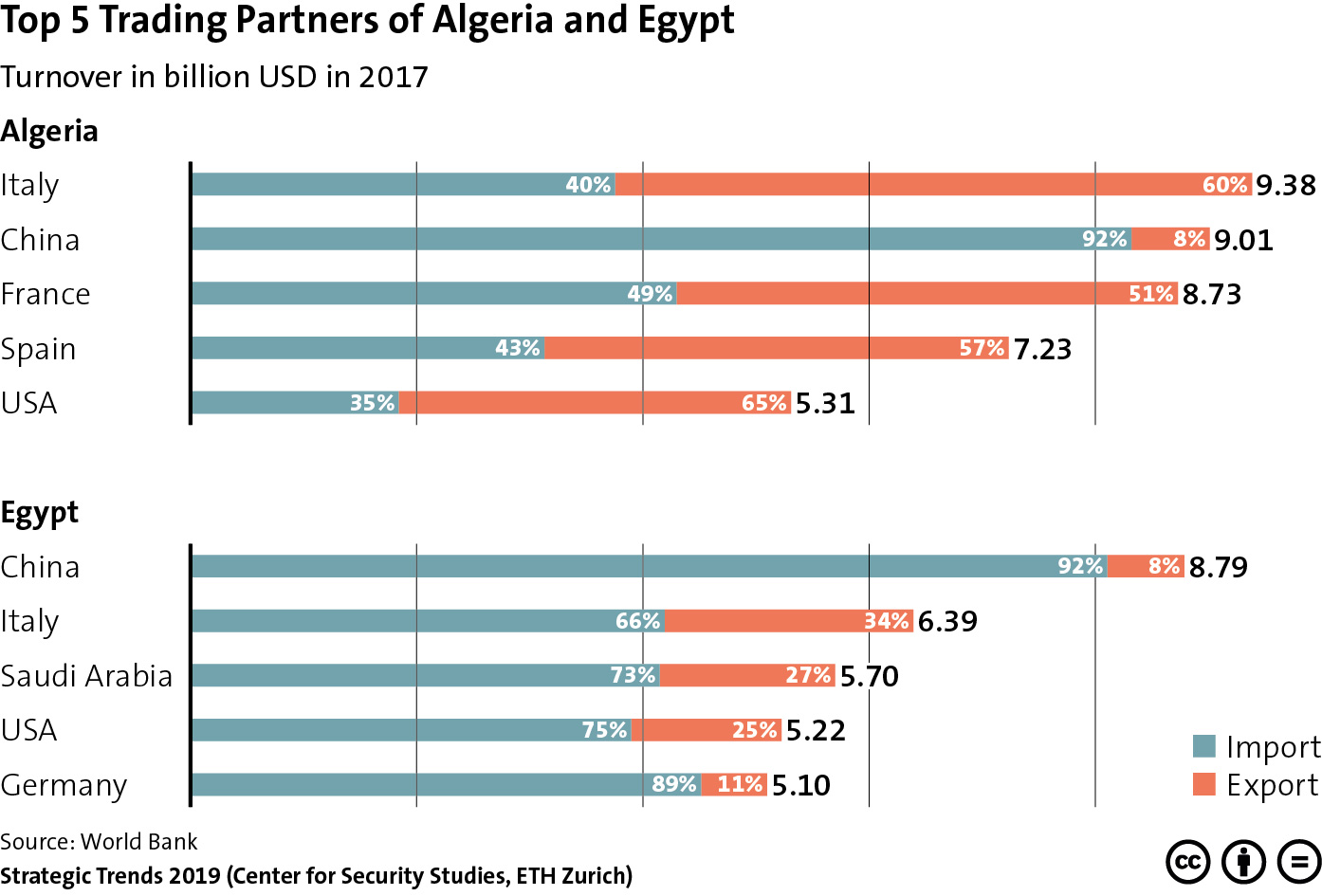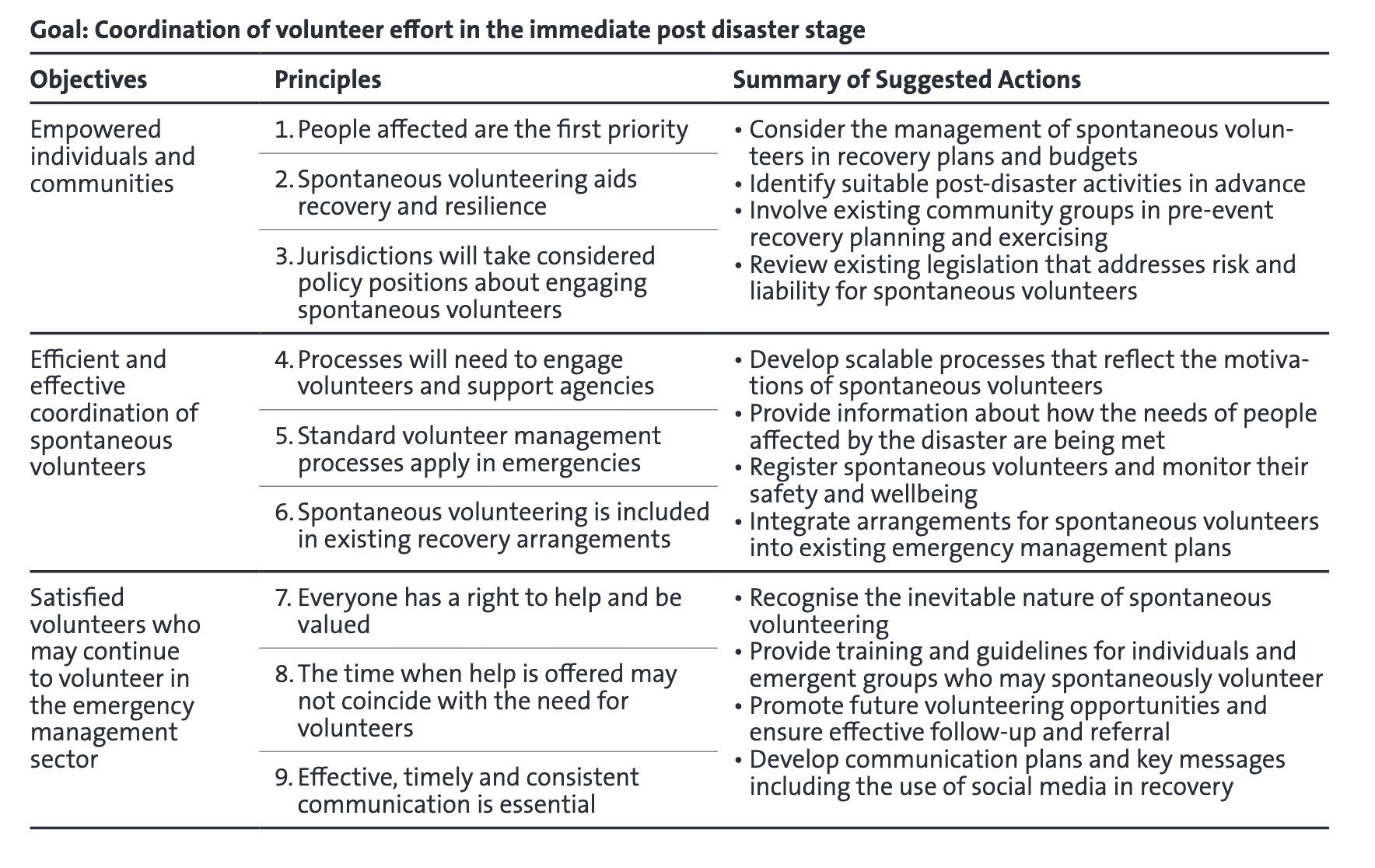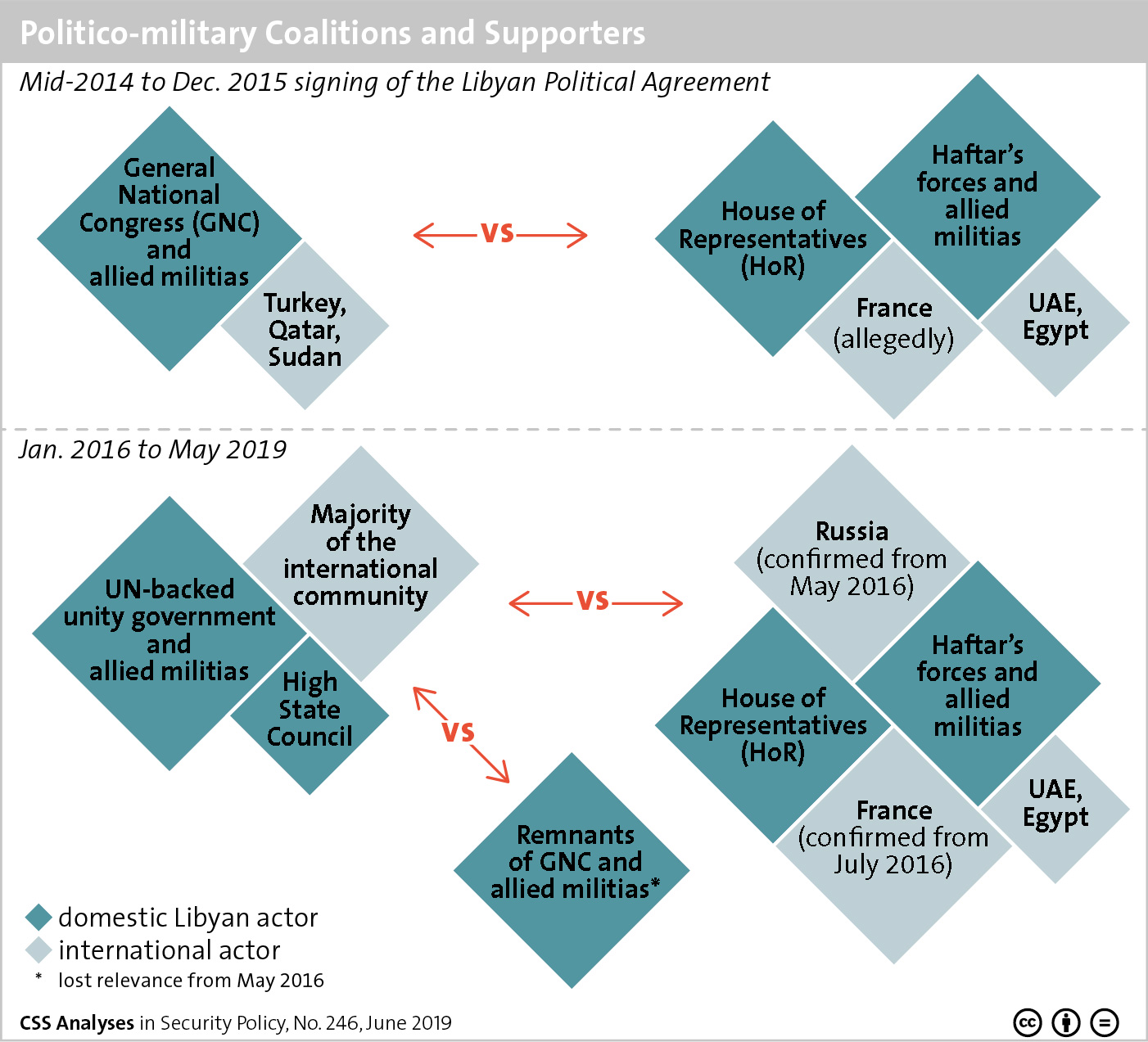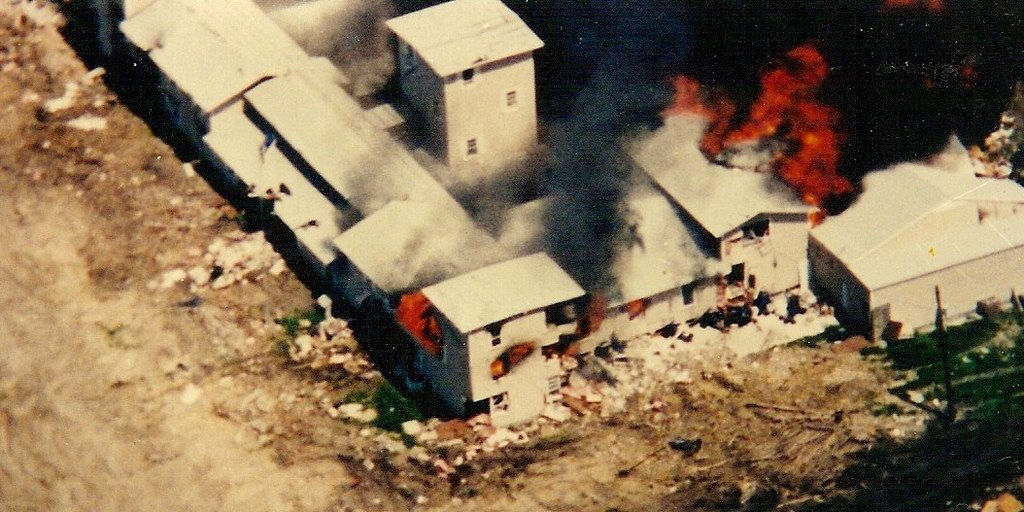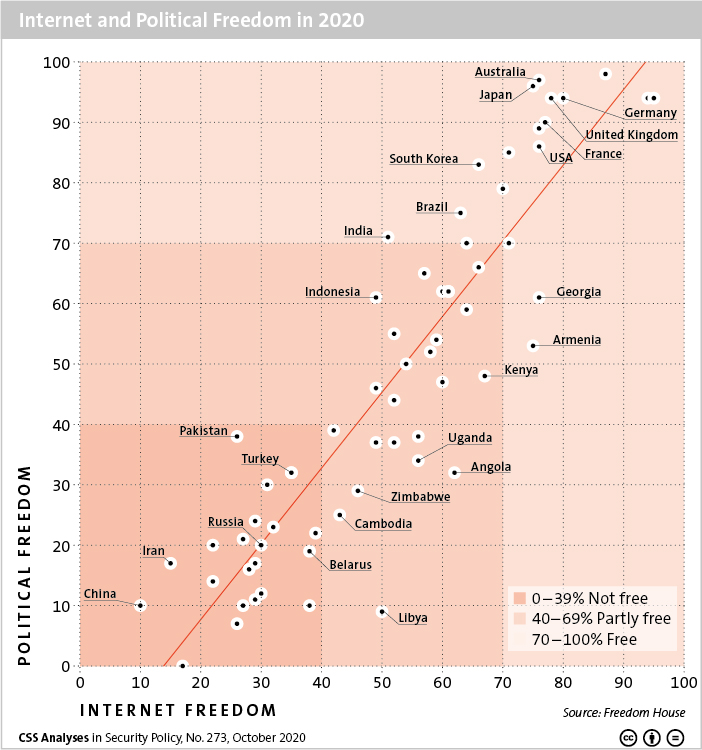
This week’s featured graphic compares the results of two Freedom House reports on political freedom and Internet freedom, which suggest there’s a link between the two.
For more on how Internet freedom is in retreat, read Julian Kamasa’s CSS Analysis in Security Policy here.

